SC verdict today
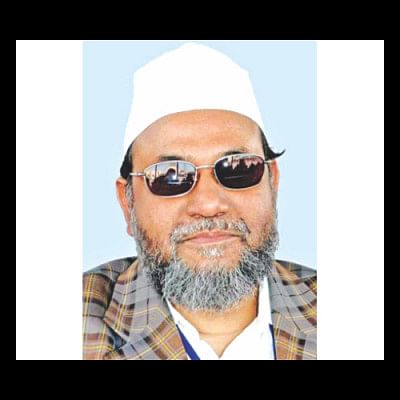
The Supreme Court is set to deliver today the verdict on the appeal of condemned war criminal Mir Quasem Ali amid some controversial comments by two ministers on the chief justice.
A five-member SC bench led by Chief Justice Surendra Kumar Sinha is scheduled to sit at 9:00am and pronounce the judgment.
The delivery of the verdict tops the day's cause list.
This is the seventh time the Appellate Division is going to deliver a verdict on an appeal against the international crimes tribunals' judgments.
Quasem Ali, 63, a member of Jamaat-e-Islami's central executive council and considered by many as a top financier of the anti-liberation party, was sentenced to death by the International Crimes Tribunal-2 in 2014 for committing crimes against humanity during the Liberation War.
On February 24, the apex court fixed today for delivering the verdict on his appeal.
The other four judges of the bench are: Justice Syed Mahmud Hossain, Justice Hasan Foez Siddique, Justice Mirza Hussain Haider, and Justice Mohammad Bazlur Rahman.
Attorney General Mahbubey Alam yesterday expressed the hope that the capital punishment for the convict would be upheld.
Talking to reporters at his office, the top law officer of the state said the apex court would deliver the verdict on the basis of statements of witnesses, evidence, information, and documents.
No politicians' comments on the chief justice would affect the verdict, he said.
Quasem Ali's lawyer Khandker Mahbub Hossain has expressed optimism that his client would “get justice” today.
He too said political comments would not influence the judgment, adding that they would accept the apex court's verdict.
Khandker Mahbub on Sunday, however, said the apex court had been “undermined” by the comments of the two ministers. He also expressed the hope that the apex court would take action against them.
Food Minister Qamrul Islam and Liberation War Affairs Minister AKM Mozammel Haque on Saturday and Sunday blasted the chief justice.
Qamrul, also a joint general secretary of Dhaka city Awami League, at a party meeting on Sunday said the chief justice in an open court made some observations that raised questions about the prosecutors and investigators' role in the trial.
“I am aggrieved by his comments in the open court,” the minister said.
Qamrul alleged that the comments had similarities with those made by some political parties that opposed to the war crimes trial.
“He [Quasem] is now in the condemned cell, but his money is well active outside the prison....
“I have a clear suggestion ... Let there be a bench of the Appellate Division, keeping the present chief justice out of the bench, which he now leads, and then let there be a fresh hearing of the appeal. This is my demand in clear terms. There is no other option,” he said, and “humbly requested” the chief justice to accept his proposal.
Minister Mozammel Haque on Sunday said the chief justice should not deliver the verdict in Quasem's case.
The attorney general the same day termed their comments unconstitutional and unprecedented and urged all to refrain from making any such comments against the chief justice.
Meanwhile, an SC lawyer yesterday served a legal notice on the two ministers asking them to explain their comments.
SM Zulfiqure Ali sent the notices to the food and liberation war affairs ministers seeking their explanation within 24 hours.
In the notice, Zulfiqure asked the ministers to explain as to why their comments on the chief justice and a matter pending with the court should not be declared illegal, unconstitutional and be considered as an offence tantamount to contempt of court.
The lawyer said if the two ministers did not provide any explanation in time, he would file a writ petition with the High Court seeking necessary action.
According to the prosecution, Mir Quasem, until November 6, 1971, was the president of Chittagong town unit of Islami Chhatra Sangha, the then student wing of Jamaat-e-Islami. He was made the general secretary of the East Pakistan Chhatra Sangha on November 6, 1971.
He went into hiding after the Pakistan occupation forces and their local collaborators surrendered on December 16, 1971. But years later, he re-emerged and subsequently assumed the role of Jamaat's chief financier.
He had been leading a free life until his arrest on June 17, 2012, at the office of the daily Naya Diganta, a concern of Diganta Media Corporation, of which he was the chairman.
The Tribunal-2 on November 2, 2014, sentenced Quasem to death after finding him guilty on 10 charges for abducting, confining, and torturing people during the war.
He was also sentenced to death for the murders of young freedom fighter Jasim, Ranjit Das, and Tuntu Sen at Dalim Hotel, an Al-Badr camp in Chittagong.
The tribunal also jailed him for 20 years for the abduction, confinement, and torture of Lutfar Rahman Faruk and Seraj and another 10 years for abduction, confinement, and torture of Nasiruddin Chowdhury.
He also got seven years in jail for six other charges. The charges are abduction, confinement, and torture of Jahangir Alam Chowdhury; abduction, confinement, and torture of Saifuddin Khan; abduction, confinement, and torture of Harunur Rashid Khan; abduction, confinement, and torture of Sanaulla Chowdhury, Habibur Rahman and Elias; abduction, confinement, and torture of Sayed Md Jamaluddin and six others; and abduction, confinement, and torture of Zakaria, Salahuddin alias Chuttu Miah, Iskandar Alam Chowdhury, Nazim Uddin and many others.

 For all latest news, follow The Daily Star's Google News channel.
For all latest news, follow The Daily Star's Google News channel. 

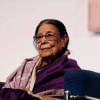
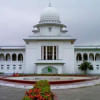
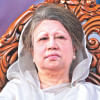

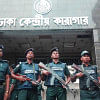


Comments